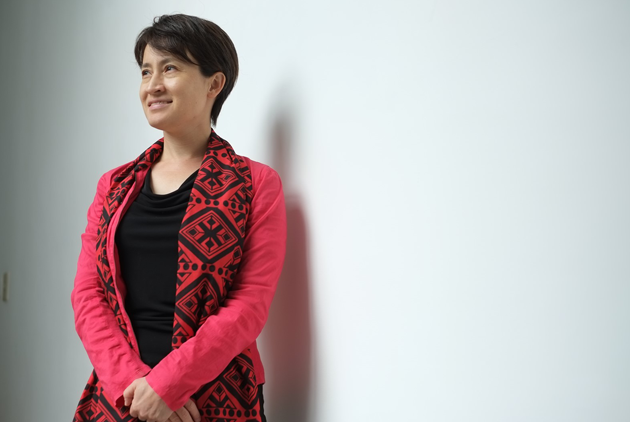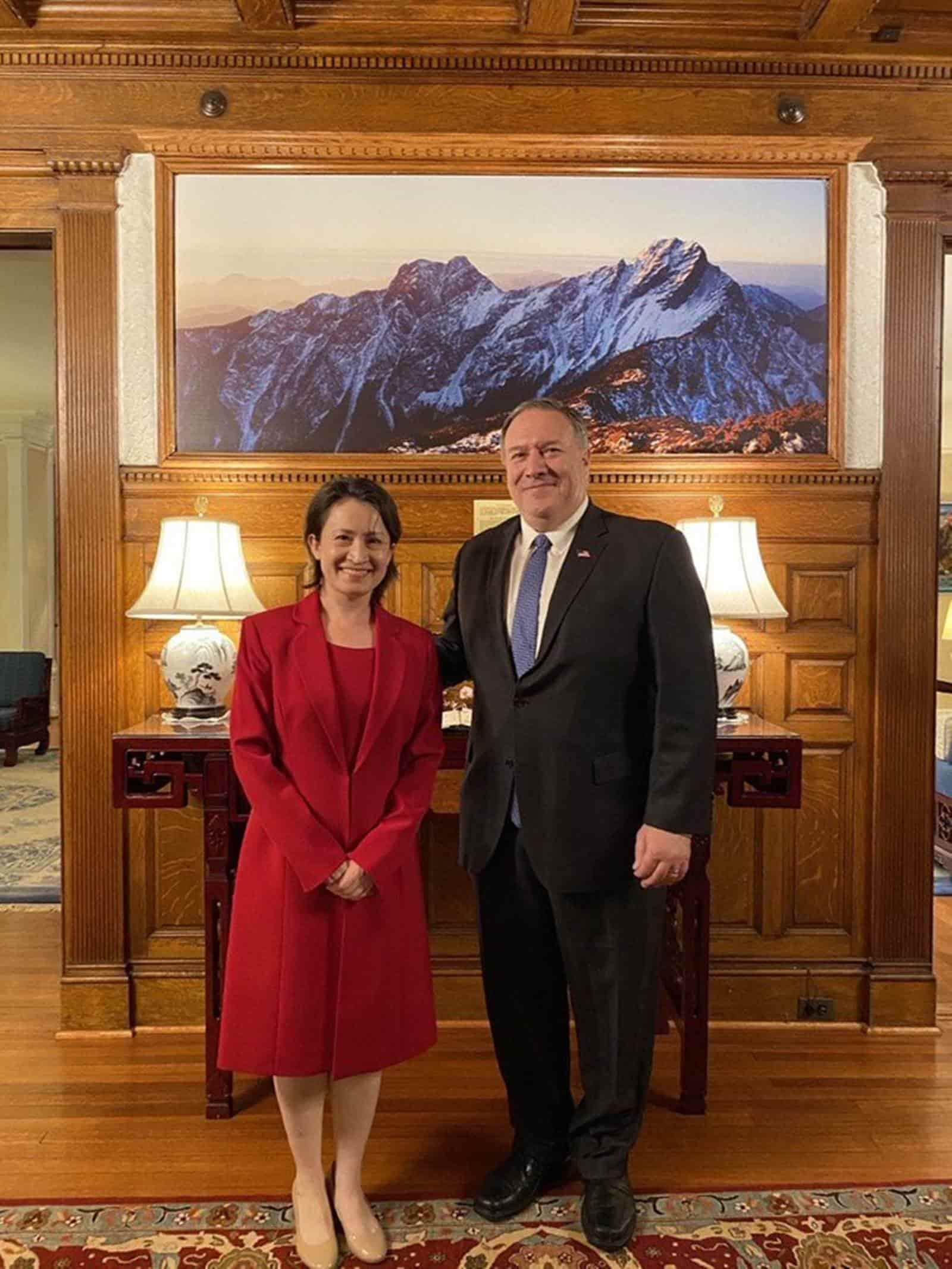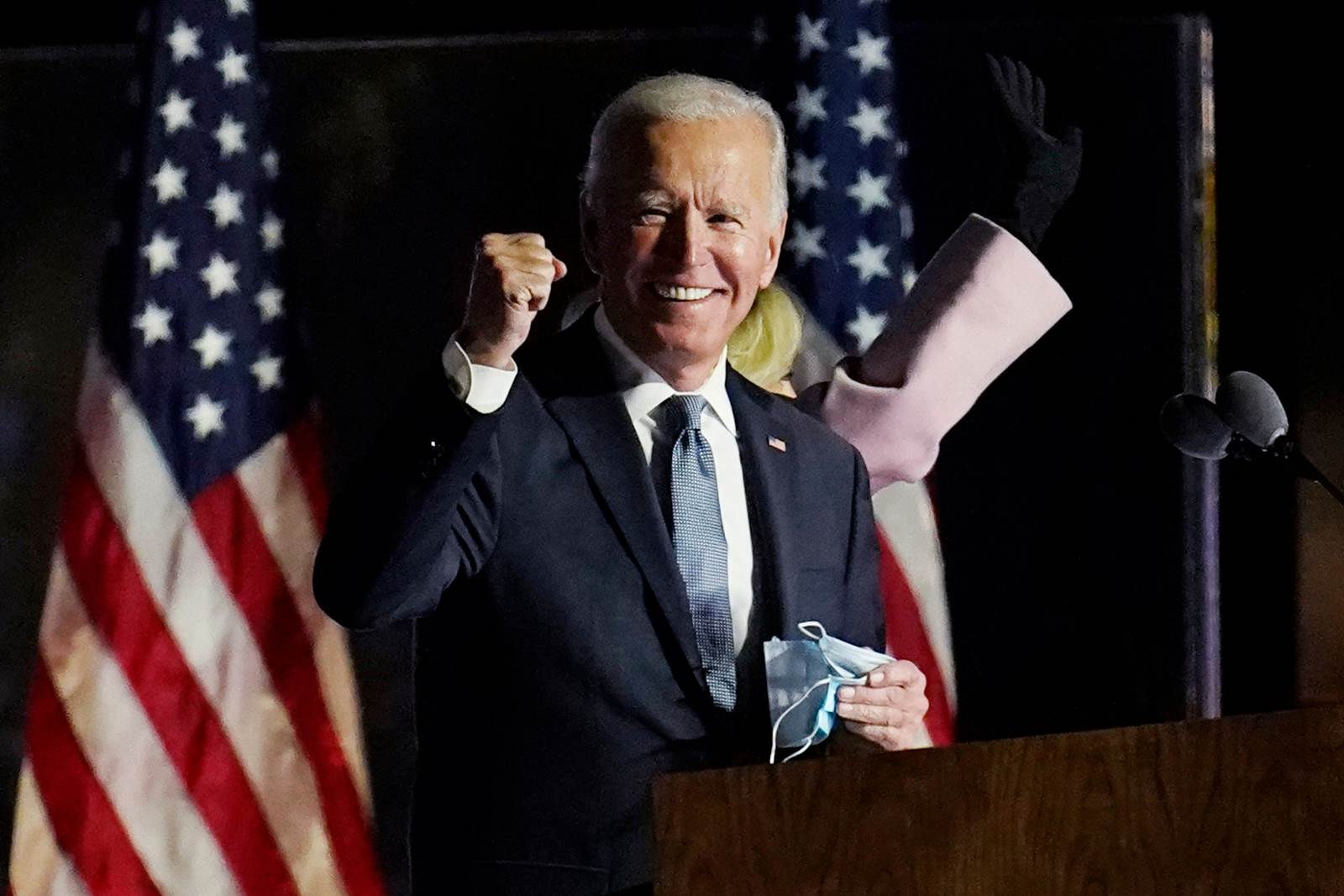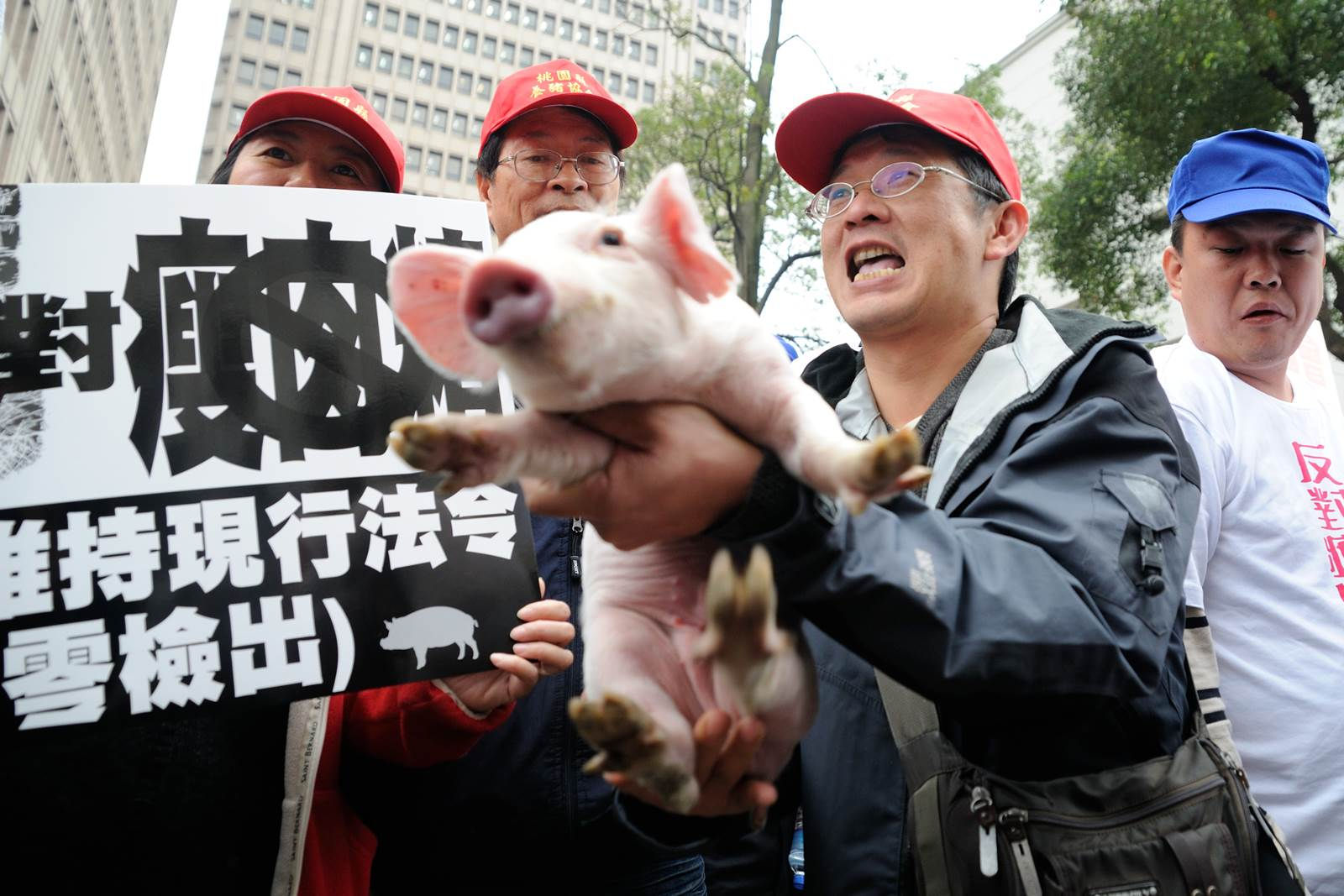Walking a tightrope on Taiwan-U.S. relations: Interview with Hsiao Bi-khim

Source:CommonWealth Magazine
Hsiao Bi-khim, Taiwan’s representative to the United States, is working to further strengthen Taiwan-U.S. relations as China ratchets up its pressure. CommonWealth Magazine asks her about that and other key bilateral issues, such as trade and supply chains, in this exclusive interview.
Views
Walking a tightrope on Taiwan-U.S. relations: Interview with Hsiao Bi-khim
By Linden Chen & Shuren KooFrom CommonWealth Magazine (vol. 721 )
CommonWealth Magazine interviewed Hsiao Bi-khim (蕭美琴), Taiwan’s representative to the United States on the night of April 8 U.S. time, a day before the U.S. State Department announced new guidelines that will make it easier for American officials to meet their Taiwanese counterparts.
There were high expectations when Hsiao assumed her position in July 2020. Not long after she started in her new post, two Trump administration officials, U.S. Secretary of Health and Human Services Alex Azar and Under Secretary of State Keith Krach, visited Taiwan. Then, just days before he left office, Secretary of State Mike Pompeo eased restrictions on official contacts with Taiwan.
 (Source: Twitter@mikepompeo)
(Source: Twitter@mikepompeo)
With the Biden administration sticking to the anti-China tenor of the Trump era, Bloomberg named Hsiao as one of the eight important people to watch in 2021.
“As China seeks to drive a wedge between Biden and President Tsai Ing-wen, Hsiao will play a key role in Taiwan’s attempt to maintain robust White House support for the democracy of 23 million,” it said.
Douglas Paal, a former director of the American Institute in Taipei’s Taipei office, said Hsiao was previously posted in Washington and built a strong network of contacts at the time. Those contacts, along with the Biden administration’s continuation of Trump’s anti-China policy and its support for Tsai Ing-wen’s steady approach has given Hsiao plenty of room for maneuver, Paal said.
In her new position, Hsiao is hoping to reverse the unequal treatment Taiwan has faced in the international community. At the same time, it is widely believed that in a tense global environment where one move can trigger unintended consequences, an overheating of Taiwan-U.S. relations could trip Beijing’s red line.
One example is America’s easing of restrictions on official exchanges with Taiwan, including allowing Taiwan to raise its flag at its Twin Oaks estate in Washington. As one diplomat posted in the United States said, “Diplomacy is about proceeding carefully rather than immediately testing the other side’s bottom line. You want to gain the understanding of the other side and make sure there are no accidents.”
Hsiao stressed during the interview that as Taiwanese pursue their dreams, they will have to do so cautiously and safely, one step at a time.
The following are translated excerpts of CommonWealth’s interview with Hsiao.
CommonWealth: You arrived in Washington in July 2020. Since then, what have you found to be the similarities and differences in America’s policy toward Taiwan under Trump and Biden?
Hsiao Bi-khim: The support for Taiwan and friendship with Taiwan is pretty much the same. My job here has three main focal points – security, economic issues, and political and international participation.
There has been a high degree of continuity in the area of security cooperation. America’s support for Taiwan is strong across party lines.
 (Source: Shutterstock)
(Source: Shutterstock)
On the economic front, the Biden government’s trade policy is generally centered around the American workforce. Taiwan and the United States have very important economic and trade relations, especially in the tech supply chain.
As for international participation, in contrast to the Trump government, the Biden administration is putting more of an emphasis on working together with allies and facing the many challenges posed by China.
Bipartisan support for Taiwan
We also hope that the U.S., through its global influence, can encourage other like-minded countries to support Taiwan, take an interest in regional security, and support Taiwan’s international participation.
The Biden administration made a very important decision, which was to return to the World Health Organization. I hope that this pledge can strengthen the U.S.’ influence in the world health body and get other countries to jointly support Taiwan’s participation.
U.S. support for Taiwan is bipartisan. I’ve interacted with more than 100 members of Congress from the two major parties. They all have similar positions on bilateral relations with Taiwan.
CommonWealth: Have you noticed any fundamental changes in America’s policy toward Taiwan from the Trump to Biden administrations?
Hsiao: There are some long standing frameworks guiding Taiwan-U.S. relations. People in Taiwan may find this unfair, but that’s the reality. The frameworks include the Taiwan Relations Act, which is the legal basis for interaction between the two sides.
The second reality is that we do not have diplomatic relations with the United States, which means that the U.S. does not recognize our sovereignty. The Taiwan Relations Act is used as the standard for interaction between Taiwan and the U.S.
Another reality is that America maintains a one-China policy, but it is different from China’s one-China principle. The U.S.’ one-China policy includes a commitment to Taiwan’s security, such as the recently declassified Six Assurances. These have been an important foundation for American policy toward Taiwan and its arms sales and security support for decades.
It would be very difficult to bring about a major change to this status quo in the current international strategic environment, but we hope to maximize existing opportunities and push for more interaction.
So from last July to the present, we have signed several MOUs that cover cooperation on education, coast guard activities and technology.
CommonWealth: The United States is currently trying to restructure its supply chains. What kind of an impact do you think that could have on Taiwan?
Hsiao: The U.S. highly values the contributions of Taiwan’s industries, especially Taiwan’s semiconductor sector and other fields related to high tech.
At last year’s Taiwan-U.S. Economic Prosperity Partnership Dialogue, the private sectors of the two sides listed supply chain security as an important issue. After that, we invited Taiwanese and American businesses to discuss in more detail how to strengthen the resilience and security of the semiconductor industry supply chain.
A few members of the U.S. Congress have proposed the CHIPS Act, which provides incentives to the semiconductor industry. Our domestic sector also has high expectations for this.
How do you shape a friendlier industrial environment? The [U.S.] government’s position is to propose mutually beneficial industry incentives to create that environment and promote cooperation and synergies between the two sides’ industries, giving them more room to grow.
CommonWealth: The last TIFA (Trade and Investment Framework Agreement) was held in October 2016. The process has been stalled for more than four years. Has there been any progress recently? Could Taiwan and the U.S. sign an FTA (free trade agreement) in the future?
Hsiao: We have a lot of friends in the U.S. Congress, and there is incredible momentum building up. We also look forward to holding a TIFA meeting as soon as possible and discussing the possibility of signing an FTA in the future.
On a trade agreement, the Biden administration has said its top priority at present is to deal with the pandemic. There is no rush to start up talks on a trade deal.
We also hope that we can maintain the mechanisms necessary for bilateral trade and mutual exchanges, and take a step further on this through TIFA.
CommonWealth: The American pork and beef issues are not just international trade issues but also closely linked to votes in agricultural states. How do you protect Taiwan’s interests under the pressure of opening up to U.S. pork and beef?
 (Source: CommonWealth Magazine)
(Source: CommonWealth Magazine)
Hsiao: The American pork and beef issues have been troubling Taiwan for more than a decade. From Bush and Obama to Trump and Biden, the U.S. government has always insisted that Taiwan open up its market for U.S. agricultural products.
If Taiwan wants to make a more systematic arrangement for bilateral trade, it has to address the pork and beef issues.
Of course, they do have a degree of importance in the U.S. Agricultural states have their expectations, but it’s not only agricultural producers that are interested in this issue.
The USTR (United States Trade Representative) wants all products to face a fair trade environment and its trade partners to respect international norms.
Those international norms include CODEX’s maximum residue limits for drugs [in foods]. If Taiwan rejects these standards, where is our scientific data? That is the focus of America’s concern.
So if we want the U.S. to feel that Taiwan is a partner worth engaging, we have to take further steps. That is why President Tsai Ing-wen announced last year that she would open Taiwan’s market to beef and pork based on international standards, respecting international norms.
[Editor’s note: CODEX narrowly passed a standard for maximum residue limits for the feed additive ractopamine in beef and pork. Ractopamine is allowed in the U.S. but banned for use in Taiwan, which long refused to accept imports of U.S. pork with ractopamine until Tsai controversially announced they would be allowed starting at the beginning of 2021.]
CommonWealth: Taiwan-U.S. relations continue to get closer, but Taiwan is also facing provocative actions by Chinese military aircraft. How do you set precise benchmarks for advancing Taiwan-U.S. relations?
Hsiao: I of course hope that bilateral relations will be maximized to their fullest. President Tsai has declared that we will insist on our position but not do anything rash. She has found a balance, which is one of the reasons why the U.S. trusts her.
This level of mutual trust is an extremely important foundation for Taiwan-U.S. relations. We are walking a tightrope and need to move very carefully. There will be times when we face setbacks, but in the end, we are still moving forward.
Have you read?
♦ Richard Bush: Biden's Taiwan Policy would be More Predictable
Translated by Luke Sabatier
Uploaded by Penny Chiang






